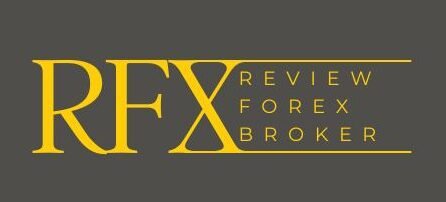In the complex world of Forex trading, regulations play a crucial role in ensuring that brokers operate fairly and transparently. For traders, understanding these regulations is essential for protecting investments and ensuring a secure trading environment. This blog will explore the importance of Forex broker regulations, key regulatory bodies, and what traders should look for when selecting a regulated broker.
Why Forex Broker Regulations Matter
- Investor Protection:
Regulations are designed to safeguard traders from fraud and malpractice. Regulated brokers must adhere to strict guidelines that protect client funds, ensure fair trading practices, and maintain transparency. - Market Integrity:
Regulatory bodies enforce rules to prevent market manipulation and ensure that all participants have equal access to information and opportunities. This helps maintain a level playing field in the Forex market. - Financial Stability:
Regulations require brokers to maintain certain financial standards and practices, reducing the risk of broker insolvency and protecting traders’ funds. - Dispute Resolution:
Regulated brokers often offer mechanisms for resolving disputes between traders and the broker, providing a layer of protection and recourse if issues arise.
Key Forex Regulatory Bodies
Different countries have their own regulatory bodies overseeing Forex trading. Here are some of the most prominent ones:
- Financial Conduct Authority (FCA) – UK:
The FCA is one of the most respected regulatory bodies globally. It oversees Forex brokers in the UK, ensuring they follow stringent rules on transparency, client fund protection, and fair trading practices. - Commodity Futures Trading Commission (CFTC) – US:
The CFTC regulates Forex brokers operating in the United States. It enforces rules to protect traders and ensures that brokers maintain high standards of financial conduct. - National Futures Association (NFA) – US:
The NFA works alongside the CFTC to regulate Forex brokers in the US. It requires brokers to meet certain financial and operational standards and provides a dispute resolution mechanism for traders. - Australian Securities and Investments Commission (ASIC) – Australia:
ASIC regulates Forex brokers in Australia, focusing on ensuring brokers adhere to financial standards, provide transparent information, and protect clients’ funds. - Cyprus Securities and Exchange Commission (CySEC) – Cyprus:
CySEC regulates Forex brokers in Cyprus and is known for its role in overseeing brokers operating across the European Union. It ensures compliance with EU regulations and offers investor protection. - Financial Services Agency (FSA) – Japan:
The FSA regulates Forex brokers in Japan, enforcing rules to ensure market integrity and protect traders.
What to Look for in a Regulated Forex Broker
When selecting a Forex broker, consider the following factors to ensure they are properly regulated and trustworthy:
- Regulatory Status:
Verify the broker’s regulatory status by checking the licenses and registrations with relevant authorities. A reputable broker will display its regulatory information on its website and provide details on the regulatory body overseeing its operations. - Segregation of Funds:
Ensure the broker segregates client funds from their operational funds. This means that your money is kept in separate accounts, which helps protect it in case the broker faces financial difficulties. - Transparency:
A regulated broker should provide clear and accurate information about its fees, spreads, and trading conditions. Look for brokers that offer detailed disclosure of their trading terms and conditions. - Customer Support:
Check the quality of customer support offered by the broker. A regulated broker should provide accessible and responsive support to assist with any issues or questions. - Compliance with Standards:
Ensure the broker complies with industry standards and regulatory requirements, such as regular audits and adherence to financial reporting standards. - Dispute Resolution:
Confirm that the broker offers mechanisms for resolving disputes. Regulatory bodies often require brokers to have procedures in place for handling customer complaints and disputes.
Conclusion
Forex broker regulations are fundamental in creating a secure and fair trading environment. Understanding these regulations helps traders protect their investments and ensure that they are dealing with reputable and compliant brokers. By choosing a broker regulated by a reputable authority, you can trade with confidence, knowing that your funds are protected, and your trading activities are conducted under stringent standards. Always do your due diligence and ensure that the broker you choose aligns with your trading needs and regulatory expectations. Happy trading!

